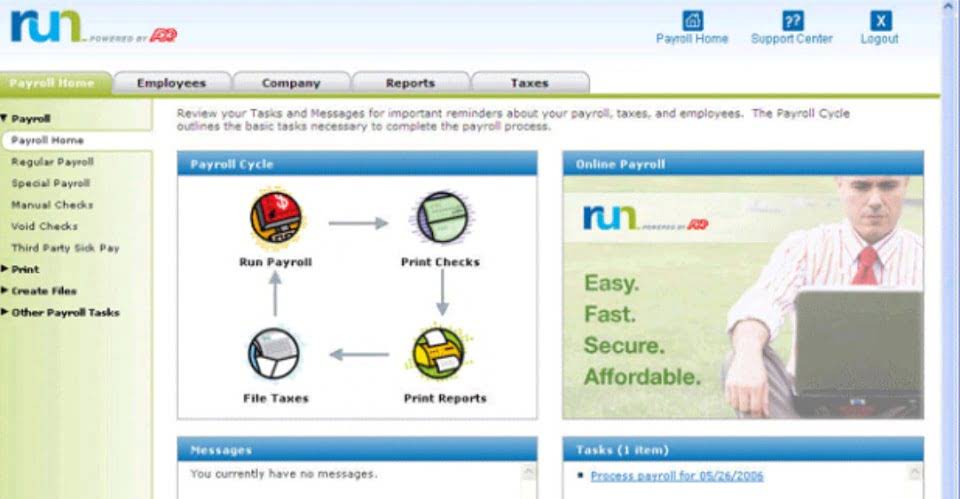
Think of it as the daily grind of recording, sorting, and summarizing every financial move a business makes. It’s like keeping a detailed diary bookkeeping of every dollar that comes in and goes out. This process helps create reports that show how the business is doing financially.

Create a chart of accounts
- Depending on the city, job, and company, you can expect to earn between $64,000 and $115,000 as an accountant in 2024, with the lower salaries typical for accountants just starting out in their careers.
- Identifying the essential skills of bookkeeping and accounting professionals is vital for business owners.
- Managerial accounting offers financial data for internal decision-making, prediction, cost evaluation, planning, and performance assessment.
- As an accountant, you must pay attention to figures and financial details, but it is more essential to possess sharp logic skills and big-picture problem-solving abilities.
Accountancy encompasses both bookkeeping and accounting but adds a professional layer. It’s about managing financial systems as a whole, ensuring the business operates within legal and ethical standards, and providing advice for long-term success. Rarely does a bookkeeper work on one big project for an eight-hour shift; instead, a typical workday involves juggling five or six smaller jobs. Nearly all bookkeeping is done using computerized accounting software and programs, so bookkeepers should be comfortable learning new technology if not proficient in it. However, significant differences exist, like the work conducted in each career and the skills needed to be successful.
- Think of it as the process of interpreting, classifying, analyzing, reporting, and summarizing financial data.
- As an accountant, you may have to crunch numbers, but those are not the only skills needed.
- Accounting degree programs teach you the generally accepted accounting principles (GAAP) as well as other record-keeping and reporting procedures.
- Growth for accountants and auditors is expected to continue for the next several years.
Small Business Focus: Tailoring Accounting and Bookkeeping
Accounting is primarily concerned with financial recording and reporting. Each field within accounting still uses basic accounting concepts, but these fields are more focused on certain areas within accounting. When deciding between hiring a bookkeeper or an accountant, consider QuickBooks ProAdvisor the scale and complexity of your financial needs. A bookkeeper is ideal for accurate transaction recording, while an accountant offers interpretative insights, strategic financial planning, and expertise in compliance.

Who is An Accountant?
- As we have established in this article clearly now, accounting is the act of recording and reporting financial data, while accountancy involves management alongside strategic decision-making.
- Bookkeepers and accountants must adhere to ethical and industry standards and maintain professional conduct.
- Prior to joining University of Phoenix, Kathryn taught fifth grade to underprivileged youth in Phoenix.
- Previously, there was only finance, but with time, different branches of accounting have evolved.
- Their bookkeeping offerings consist of a software platform that you connect your accounts to, with either Live Assisted or Full-Service Bookkeeping.
- An accountant needs strong book-keeping skills to ensure data accuracy before analysis.
These credentials demonstrate a higher level of expertise and are highly valued in the industry. Bookkeeping is the systematic recording of financial transactions on a daily basis. Bookkeepers ensure that all financial transactions are accurate and comprehensive, providing a foundational layer of data that accounting builds upon. If you need an extra hand, you can also work with a team of QuickBooks-certified bookkeepers to help you manage and maintain your books virtually. They can help you keep past books up-to-date and take everyday bookkeeping tasks off your plate so you can focus on your business.
- Today, accountancy is becoming increasingly linked with entrepreneurship.
- Bookkeeping’s main functions include recording all forms of business transactions, such as sales, purchases, receipts, and payments.
- This specialized accreditation signifies that the program meets rigorous criteria and standards for excellence in accounting education across engagement, innovation and impact.
- Of course, a background in accounting practices will help you ride out a learning curve as a new bookkeeper.
- The Bureau of Labor Statistics (BLS) expects 4% job growth in this field from 2022 to 2032.
- You might also work with a firm that offers both services under one roof, which can ensure consistency.

It becomes accountancy very important to keep proper records of what goes in business. This record-keeping help in finding out the amount payable to suppliers or the amount receivable from credit sales and extracting valuable information. These records are collectively called books of accounts, and three terms that you will come across are BookKeeping, Accounting and Accountancy. By definition, an accounting degree provides undergraduate students with the theories and principles of recording, classifying, summarizing and interpreting financial transactions of a particular entity. It’s not just about the numbers; it’s about making decisions based on those numbers.


